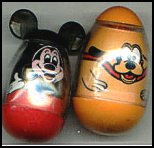ESPN.com: MLB - Examiner: Kile likely died from blocked artery
Friday night, the day before he died, Darryl Kile complained of weakness and shoulder pain. (I assume it was in the left shoulder; as a righthanded pitcher pain in that shoulder would not have been particularly noteworthy.) I'm enough of a hypochondriac to know what those are the danger signs of.
Kile's father died of a heart attack in his mid-forties. My father had a cardiac episode a few years ago (he's in his sixties) which was the first sign of a congenital heart problem. These things are often hereditary, and I will probably have the same problem, if I make it that long. I intend to have that checked when it's time.
Last week, in the days before Kile's death, I was reading
The Pitch That Killed by Mike Sowell. A little background for those of you not steeped in baseball history...
The 1920 season was probably the single biggest turning point in baseball history, with the possible exception of 1947 (when Jackie Robinson joined the Dodgers, followed quickly by other black players). It was the year when Babe Ruth, who had already set the major league record for home runs in a season with 29 the previous year, shattered all expectations with 54 homers, signalling the biggest change in the way baseball was played ever seen. Late in the season, the Black Sox Scandal broke, and fans learned that the 1919 Chicago White Sox had sold the World Series to gamblers.
And Cleveland Indians shortstop Ray Chapman was killed by a pitch delivered by the Yankees' Carl Mays.
These were the days before batting helmets (which weren't finally accepted until the fifties). Chapman apparently froze up when the ball started coming right at him. (Mays threw very hard, but underhanded; his fastballs rose rather than sank.) Chapman was struck in the temple; he lingered a couple of days and then died. He remains the only major leaguer to die as a direct result of something happening on the field. He left behind his wife and an unborn daughter.
Amazingly, these three teams -- Chapman's Indians, the disgraced White Sox, and the Yankees of Ruth and Mays -- spent the season locked in a pennant race. More amazingly, the Indians
won the American League, and later the World Series. Chapman's position was taken over by Joe Sewell, later a Hall of Famer but then just a rookie less than a year out of the University of Alabama. The Indians were convinced Chapman had been there helping them the whole time.




